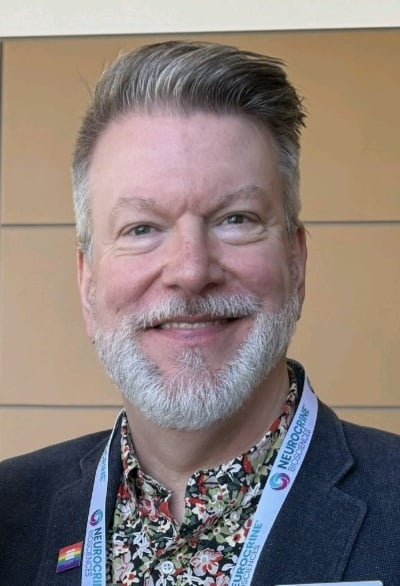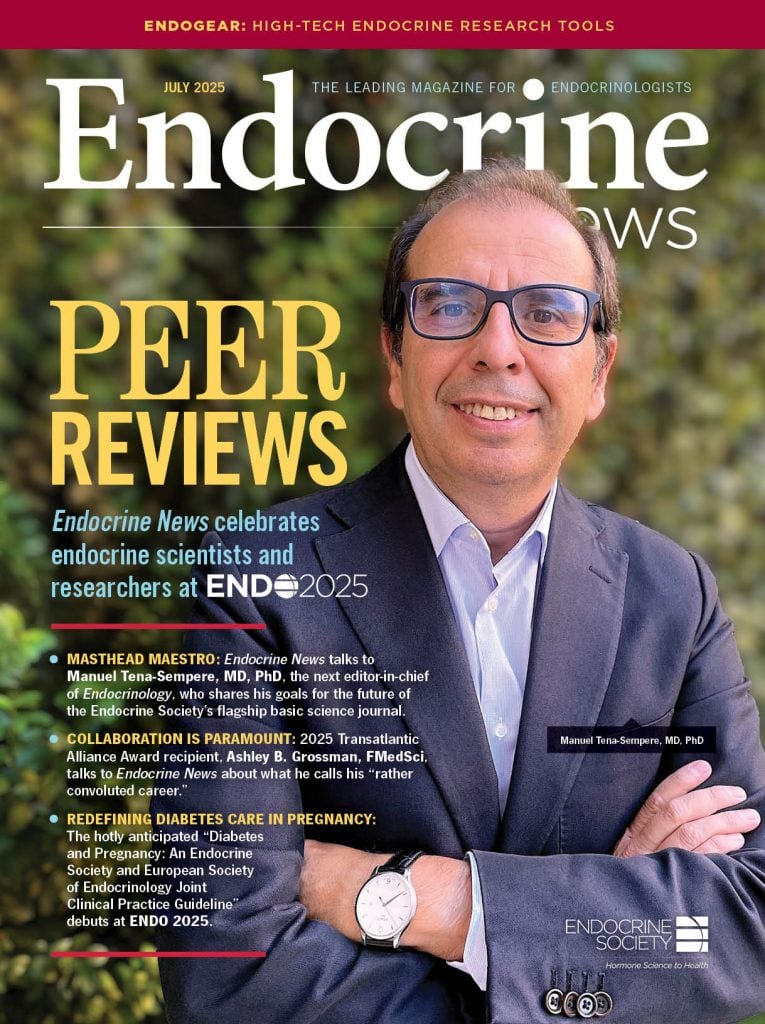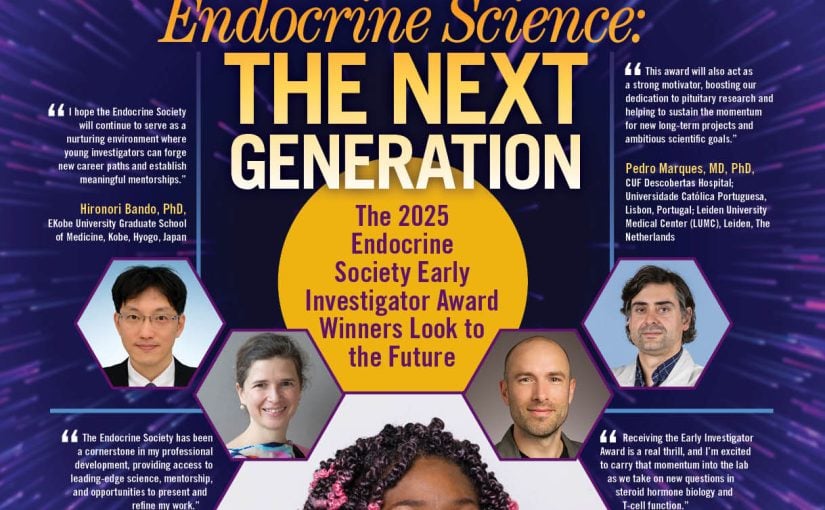
It’s no secret that the Endocrine Society’s peer-reviewed journals are considered the leading research journals in the endocrinology and diabetes space, and this month’s issue highlights a couple of our journal editors who are each making news in very different ways.
First off, on the cover we are featuring the next editor-in-chief of Endocrinology, Manuel Tena-Sempere, MD, PhD, who will take the reins of the Society’s flagship basic science journal in January 2026. In “Masthead Maestro,” Glenda Fauntleroy Shaw got the chance to speak with Tena-Sempere about his new role, as well as how Endocrinology actually had an impact on his own research career. He also tells Glenda how he plans to make Endocrinology the “go to” journal for researchers around the world. However, he says that it helps that the Endocrine Society itself is a global society. “We must keep the reputation of Endocrinology as a top-tier international journal that is the destination for groundbreaking papers from all countries worldwide, for our 18,000 members as well as for the many non-members who publish with us,” he tells us. “In this sense, besides maintaining its solid science, we can learn from what authors experience during the submission and peer review process to make Endocrinology even more friendly and attractive. And for Endocrine Society members, it must be remembered that regular publication fees are waived, which may be very useful these days.”

A second Endocrine Society journal editor takes center stage in “Collaboration Is Paramount: Ashley B. Grossman’s Transatlantic Legacy.” Kelly Horvath spoke with Grossman, who is not only the editor-in-chief of Endocrine Reviews, but he is also the recipient of the 2025 Transatlantic Alliance Award from the Endocrine Society and the European Society of Endocrinology! He speaks to Kelly about what this prestigious award means to him as well as what drew him to the field in the first place and discusses the importance of not only being a good mentor but of also being a good mentee. However, Grossman becomes downright contemplative when asked about the importance of the Endocrine Society to his professional and personal journeys, noting that the sheer size and breadth of the organization allowing for a wide exposure to a huge number of influences has always been exciting, he says. “In more recent years, [the Endocrine Society] has become such an open and inclusive body, with such a diversity of people and efforts to actually exploit that: It’s really an ‘international society of endocrinology,’” he says, adding that he goes to ENDO “as much to network and meet up with my friends and colleagues, or strike up new research relationships. It has increasingly become very internationalist, and I think that’s to everyone’s benefit.” Not to mention the benefit of the science and practice of endocrinology around the world!
ENDO 2025 saw the much-anticipated release of the Endocrine Society’s new Clinical Practice Guidelines, “Diabetes and Pregnancy: An Endocrine Society and European Society of Endocrinology Joint Clinical Practice Guideline” and “Primary Aldosteronism: An Endocrine Society Clinical Practice Guideline.” Kelly gives us the details the former in “Redefining Diabetes Care in Pregnancy.” This guideline has been highly anticipated and will finally give clinicians a definitive guide on treating these patients with the help of a tool that now includes the most recent breakthroughs in diabetes treatment.
And, finally, in “Tightrope: Obesity Management in Women During Reproductive Years,” Senior Editor Derek Bagley takes a look at one of the sessions featured in the ENDO 2025 symposium “Obesity Management Across the Lifespan: Special Considerations” entitled “Balancing Weight and Wellness: Obesity Management in Women During Reproductive Years” conducted by Lisa L. Morselli, MD, PhD, from the Medical College of Wisconsin in Milwaukee, who stresses the importance of messaging when talking to patients about weight loss. “Weight loss should be attempted to improve health or prevent future complications of excess weight, rather than to look good/conform to society pressure,” she says. “We do not want to trigger eating disorders or other mental health issues related to fat-shaming or bias.”
With ENDO 2025 in the rearview, I was fortunate to see so many of you at the Moscone Center in San Francisco!

